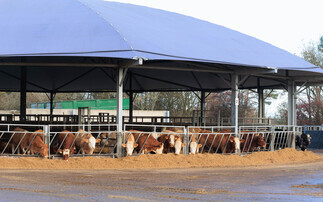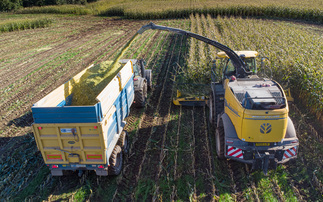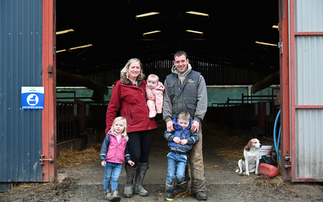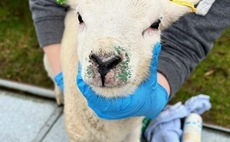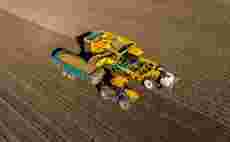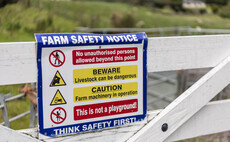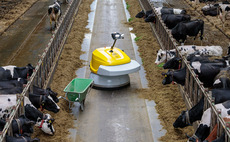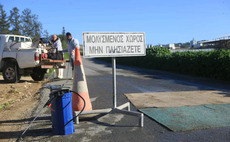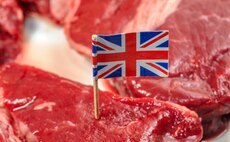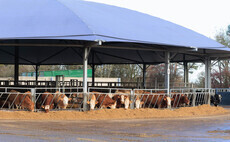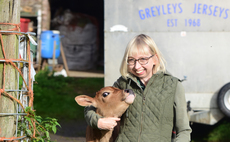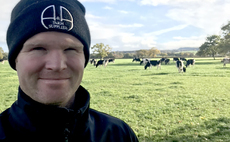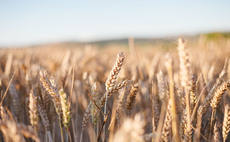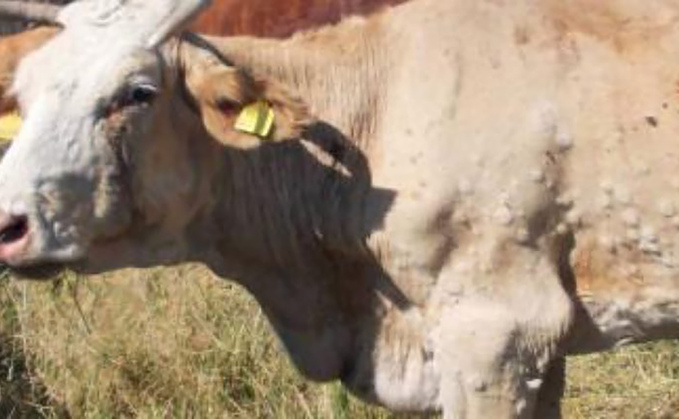
Infected cattle may develop dozens of large, round nodules on their skin.
Caused by the lumpy skin disease virus, a member of the Capripoxvirus genus, lumpy skin disease (LSD) has been moving steadily across Europe this summer and recent outbreaks in France and Italy have sparked concern among vets and producers in the UK.��
Stéphane Alkabès, lead stud vet at Synetics, says LSD is primarily spread by biting insects such as mosquitoes, horseflies, midges and ticks, which carry the virus from infected to healthy animals.��
The disease can spread rapidly, especially during warm weather and can also be transmitted through direct contact with infected saliva, nasal or eye secretions, milk or semen.����
On June 29,��France confirmed its first cases of LSD in the region of Savoie, near Chambéry, not far from the Swiss border.
Around the same time, Italian authorities reported outbreaks in Sardinia and in the northern region of Lombardy. These are the first recorded cases in either country in over a decade.��
Symptoms of LSD are difficult to ignore, says Dr Alkabès, with��infected cattle developing a high fever and large, round nodules on their skin - sometimes dozens or even hundreds of them.����
Dr Alkabès says: "These nodules can rupture and become infected, leaving painful ulcers and permanent scars. Animals often show swelling of the limbs, drooling, reluctance to move, and clear signs of discomfort."��
He says the disease can also cause milk yields to plummet, often by 20% to 30% percent, and cows may abort or fail to conceive again quickly.��
He adds: "Bulls can also suffer a loss in fertility lasting weeks or even months. Altogether, it is a blow to animal welfare, but also to the bottom line of any beef or dairy operation."��
So far,��Dr Alkabès says��the UK remains LSD-free, and Government surveillance and import controls are working hard to keep it that way.
However, given the recent outbreaks on the continent and the growing pressure from climate conditions that favour insect spread, the risk of incursion is real.
READ NOW: Diseased cows cause Tour de France route to be changed��
The UK's��Chief Veterinary Officer, Dr Christine Middlemiss says: "Our risk of Lumpy Skin Disease (LSD) has increased, it has gone from negligible to very low. So compared to African swine fever and foot and mouth disease (FMD), the risk is less. That is partly due to the fact it does not spread in meat and is mostly spread by biting insects.��
"The bigger concern for me is what is causing these things to appear in Europe. The EU was free of FMD until the incursion in January, and free of LSD until the detection in Sardinia. It feels like there are risk pathways and movements that are happening, that are enabling disease to come in, which is increasing the risk for all of us.��
She adds:��"As the name suggests, farmers should be looking for nodules on their cattle specifically. There will nodules along the back or scabbing. It can also be visible around the udder."��

Any suspected cases of LSD must be reported to the Animal and Plant Health Agency by calling 03000 200 301.
LSD is a notifiable disease in the UK, and confirmed cases trigger strict control measures.��
According to current UK legislation, and in line with European Animal Health Law, all susceptible cattle on an infected holding must be culled under government supervision to prevent further spread.����
Vaccination against LSD is not allowed in disease-free countries like the UK unless an outbreak occurs, and in the case of an outbreak, special authorisation is required.
Therefore, Dr Alkabès says the UK's best defence is vigilance and rapid reporting.��
He adds: "LSD may still be a few miles away, but it is getting closer. With good awareness and quick action, UK farmers can help keep this unwelcome visitor off our shores and protect both their animals and their livelihoods."





